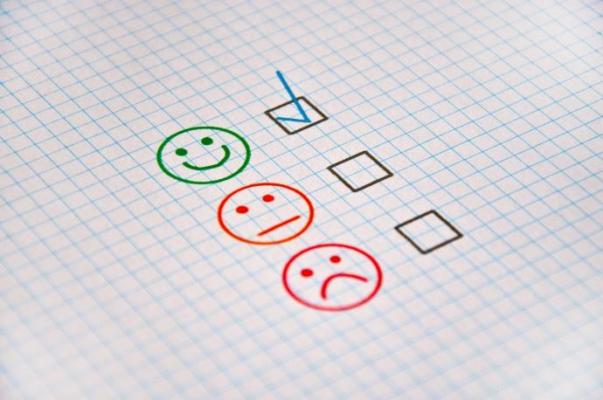Following on from my original blog earlier in the year about the benefits of collecting and using meaningful feedback, we have finally been able to take a moment and share the changes we have made to our evaluation process.
How have we improved our feedback process?
The feedback process for our open course programmes centres around a questionnaire that learners are asked to complete. This form has undergone significant changes, which can be summarised into two key points:
- We have decreased the number of questions on our form and streamlined its focus to the key learning experience.
- Learners are now asked to rate their own knowledge and skillset before and after training, giving us quantifiable information about the learning impact.
These changes have given us data that is more useful, and has reduced the time onus on the learner to complete the form. We have also improved the practicalities of completing the form, including providing learners with a QR code at the end of sessions so that the form can be accessed quickly and efficiently from their mobile phone.
The form now contains no specific questions about practicalities of the training session, such as catering. If there is a serious issue, learners are welcome to let us know about it in the open comments section. Meaningful data collection is now that the core of our new process.
What else has changed?
We are the preferred learning provider for many of our larger member organisations, with some booking dozens of courses annually. For those who regularly use our learning services, a quarterly overview of their in-house course feedback will be provided on request to give a clear summary of the impact of our interventions.
Providing learners with continued support after the course finishes has also been considered. Many of our facilitators, especially for our management courses, now create peer groups where contact information is shared, with the delegates permission, at the end of courses. This means that learners can utilise each other’s knowledge and experience in the future. While this does not create the same degree of accountability as meetings with a line manager would, for us, this is a good way of ensuring that the course content stays at the forefront of each learner’s mind as they go back into the workplace.
Looking to improve your evaluation process?
Your organisation's training evaluation process may look quite different to ours, as you may have many more opportunities to create touchpoints and monitor behaviourial change. Over and above creating a high-quality feedback form, we would recommend:
1. Keeping your focus on the intended outcomes
Results take time and regular learner touchpoints are required to identify them. When you consider classic models of evaluation, such as Kirkpatrick’s Four Levels of Evaluation or Phillips ROI Model, knowledge transfer is often only the first level. What should come next is behaviour change, which then turns into results and return on investment for the organisation. Remember to build learning interventions around their intended results, instead of the other way around. This will also give you a much better idea of what to measure when evaluating the effectiveness of learning interventions.
2. Proactively balancing ideals against practicalities
Collecting high-quality evaluation data can require a significant time investment. While in an ideal world you could complete workplace observations, peer feedback surveys, knowledge assessments, and self-reflections, in practice this may not be realistic. In the planning phase, carefully consider what is the minimum amount of data you would need to evidence impact and justify learning costs.
3. Connecting with key stakeholders before learning initiatives take place
We regularly provide an additional 2-hour workshop before running in-house management programmes that is specifically for the delegates line managers. The aim of this session is to ensure that these individuals understand what the delegate will learn, how to support them and how to maintain accountability after the learning has taken place. This increases the likelihood of learning translating into behavior change.
4. Working in partnership with external learning providers
Just because a learning provider already has their own method of evaluating training programmes does not mean that this is the right way for your organisation. From a provider perspective, it is always refreshing to hear that you have really thought about your evaluation process and what you want to know. At the end of the day, your requirements should be central to the process and learning providers should work around you.
Need help?
If you are an HR or L&D professional working for a Cambridge Network member organisation who would like to discuss ways to improve your feedback process please do get in touch, we’d be more than happy to help.
